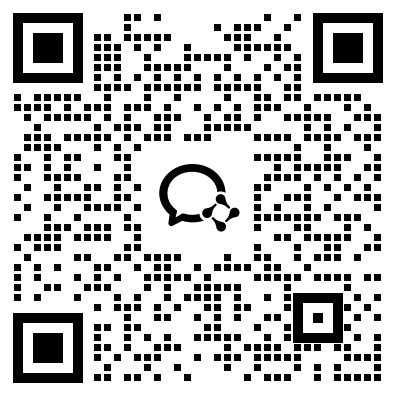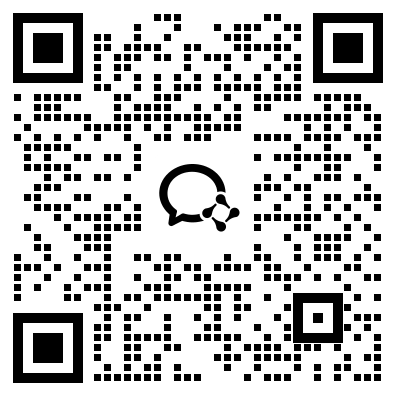特惠-26考研冲刺
特惠-27考研课
双证-在职硕士
免联考-同等学力
复试分数线
26复试全面指导
模拟复试面试
26考研-全套真题
26考研估分
保研-路线图
27考研-智能择校
27考研-英语测评
27考研-新大纲对比
热门-计算机择校

扫码加入训练营
牢记核心词
学习得礼盒
六、疑问代词
疑问代词用来构成特殊疑问句,其中who(whom/whose)指人,what指物,which指选择对象。
例句: Whats the difference between love and fondness or what is the nature of luck and coincidence? (选自2007年Text 2)
分析: 该句是由or连接的两个简单句(特殊疑问句)。
译文: 爱情与喜欢有什么区别,幸运和巧合的本质是什么?
七、关系代词
关系代词包括who(whom,whose),that和which。that只能引导限制性定语从句,其他关系代词既可引导限制性定语从句也可引导非限制性定语从句,具体用法详见定语从句一节。
八、不定代词
(一)both,all
1. both用于两者,all用于三者及三者以上,其后接名词复数形式,谓语动词用复数,在句中可作主语、宾语、定语和同位语。
例句: Similar elements in the prehistoric remains from both areas suggest that Indians and their neighbors had maintained distant but real connections even before 1,500 BC.
分析: 该句是复合句,suggest是主句的谓语动词,that Indians and their neighbors...是一个宾语从句。
译文: 来自两个地区的史前遗迹中的类似成分表明: 印度人和他们的邻居甚至在公元前1500年前就维持着遥远但真实的联系。
例句: In the early industrialized countries of Europe the process of industrialization—with all the farreaching changes in social patterns that followed—was spread over nearly a century, whereas nowadays a developing nation may undergo the same process in a decade or so. (2000年第74题)
分析: 该句是并列复合句,whereas连接两个并列分句,其中前一个分句的主句部分为the process of industrialization was spread over nearly a century,而介词短语with...为主语补足语,定语从句that followed修饰changes。
译文: 在早先实现工业化的欧洲国家中,其工业化进程以及随之而来的对社会结构有深远影响的变革延续了将近一个世纪,而现如今,一个发展中国家只用十年左右的时间就可以经历同样的过程。
2. all作代词时,其后谓语动词可以是单数也可以是复数。
例句: All the information we have collected in relation to that case adds up to very little.
分析: 该句是复合句,其中主干部分是All the information...adds up to very little,we have collected in relation to that case 是修饰the information的定语从句。
译文: 我们搜集到的与那件事有关的所有信息都是没有意义的。
例句: All but he and I are going to attend the meeting.
译文: 除了我和他之外,所有人都去开会了。
3. both,all,every和not连用时表示部分否定。
例句 :But not all parts of the brain are equally involved; the limbic system(the“emotional brain”) is especially active, while the prefrontal cortex (the center of intellect and reasoning) is relatively quiet. (选自2005年Text 3)
分析: 该句是由分号及while连接的并列句,分号相当于连词and,not all...表示部分否定。
译文: 但并不是大脑的所有部分都参与活动,控制情绪的大脑部位异常活跃,然而控制智力和推理能力的前额皮质却相对平静。
例句: Not everyone sees that process in perspective. (选自2002年Use of English)
分析: 该句是简单句。
译文: 不是每个人都能正确看待这个过程。
(二)either, neither, any, each, none, every, some
1. either和neither是一对反义词,表示“两者中任何一个都(不)”,作名词或形容词。
用法为:
either (neither) of the+复数名词+动词单数
either (neither)+单数名词+动词单数
如:Either/Neither of these stories (either/neither story) he told us is as attractive and instructive as that one.
例句: Neither kind of sleep is at all wellunderstood, but REM (rapid eye movements) sleep is assumed to serve some restorative function of the brain.
分析: 该句是并列句。
译文: 人们对这两种睡眠都没有完全了解,但认为快速眼动睡眠有使大脑恢复的功能。
2. either指两者中的任何一个,仅限两者,而each用于两者以上;either和both可互换使用,但both强调整体。
例句: The relationship between Latin American music and black music in the United States is evident in the unaccented beats that are common to either/both.
分析: 该句是复合句,定语从句that are common to either/both修饰beats。
译文: 拉丁美洲音乐同美国黑人音乐的关系明显地表现在这两种音乐各自存在着无重音 节拍这一共同点上。
例句: We also expect each place to be appropriate to its use.
分析: 该句是简单句。
译文: 我们也希望每个地方都恰如其分。
3. any和none是一对反义词,表示“三者或三者以上中的任何一个都(不)”,其后谓语动词 的单复数参看例句。
例句: Although Professor Greens lectures usually run over the fiftyminute period, none of his students ever object(s)as they find his lectures both informative and interesting.
分析: 该句是复合句。
译文: 虽然格林教授的课通常超过规定的50分钟,但他的学生从无一人表示反对,因为他们发现格林的课既富有知识性又有趣。
例句: If any man here does not agree with me, he should put forward his own plan of improving the living conditions of these people.
分析: 该句是复合句。
译文: 如果在座的有人不赞成我的观点,那么他就应该提出他自己的改善这些人生活条件的方案。
4. any和some的主要区别在于any用于否定句、条件句和疑问句;some用于肯定句,表示期待对方的肯定答复或以问句形式向对方提出要求或邀请。
例句: He has failed me so many times that I no longer place any reliance on what he promises. (1997年第23题)
分析: 该句是复合句。
译文: 他多次辜负了我的期望,以至于我不再相信他作出的任何承诺。
例句: The idea that some groups of people may be more intelligent than others is one of those hypotheses that dare not speak its name. (选自2008年Use of English)
分析: 该句是复合句,主干部分是The idea is one of those hypotheses。that some groups of people may be more intelligent than others是idea的同位语从句,that dare not speak its name是hypotheses的定语从句。
译文: 认为某些群体的智商要高于其他群体是一个无人敢说出来的假想。
5. every只能用作形容词,everyone指人,而every one既可以指物也可以指人。
例句: Without telephone it would be impossible to carry on the functions of practically every business operation in the whole country. (1998年第32题)
分析: 该句是简单句,本句隐含了一个与现在情况相反的虚拟语气,Without telephone相 当于if there were no telephone。
译文: 如果没有电话,全国几乎所有的商业运作都不可能正常进行。
例句: There is an incorrect assumption among scientists and medical people that everyone agrees on what constitutes a benefit to an individual.
分析: 该句是复合句,that everyone agrees on...作assumption的同位语从句,what constitutes a benefit to an individual作介词on的宾语。
译文: 科学家和医务人员普遍持有一种不正确的假设,即:人们在什么构成了个人利益问题上意见一致。
【英语语法资料】这里有↑↑↑

 资料下载
资料下载
2014年-2025年考研历年真题汇总
发布时间:2024-04-25扫码添加【考研班主任】
即可领取资料包
考研大纲PDF电子版下载-历年(附解析)
发布时间:2024-04-25扫码添加【考研班主任】
即可领取资料包
2026年考研政数英备考资料zip压缩包
发布时间:2024-04-25扫码添加【考研班主任】
即可领取资料包
考研英语大纲词汇5500打印版(基础必备)
发布时间:2024-04-25扫码添加【考研班主任】
即可领取资料包
新东方在线考试模拟题【12套】
发布时间:2024-04-25扫码添加【考研班主任】
即可领取资料包
2026年考研专业课知识点总结
发布时间:2024-04-25扫码添加【考研班主任】
即可领取资料包
新东方考研资料下载地址
发布时间:2023-05-17新东方在线考研资料合集
下载方式:微信扫码,获取网盘链接

目录:
1.2013-2023年近10年政数英真题及解析PDF版(新东方)
2.2013-2023年专业课考试历年真题及解析PDF版
3.24考研复习备考资料大合集:大纲+备考资料+词汇书+考前押题+自命题
资料介绍:
1.2013-2023年近10年政数英真题及解析PDF版(新东方)
 、
、
2.2013-2023年专业课考试历年真题及解析PDF版


3.24考研复习备考资料大合集

3.24考研复习备考资料:考研大纲

3.24考研复习备考资料:政数英备考资料+自命题真题

------------------
考研备考过程中,尤其是专业课部分,参考往年的考试真题,对于我们的复习有更好的帮助。北京大学考研真题资料都有哪些?小编为大家进行了汇总。
北京大学考研真题资料-公共课

北京大学考研真题资料-专业课


以上就是关于“北京大学考研真题资料下载(历年汇总)”的整理,更多考研资料下载,请关注微信获取下载地址。
2024考研公共课必背知识点汇总
发布时间:2023-01-03扫码添加【考研班主任】
即可领取资料包
2013-2023考研历年真题汇总
发布时间:2023-01-03扫码添加【考研班主任】
即可领取资料包
考研英语大纲词汇(PDF可打印)
发布时间:2023-01-03扫码添加【考研班主任】
即可领取资料包
2024考研专业课知识点总结
发布时间:2023-01-03扫码添加【考研班主任】
即可领取资料包
2023考研政治 内部押题 PDF
发布时间:2022-11-16扫码添加【考研班主任】
即可领取资料包
徐涛:23考研预测六套卷
发布时间:2022-11-16扫码添加【考研班主任】
即可领取资料包
考研政数英冲刺资料最新整理
发布时间:2022-11-16扫码添加【考研班主任】
即可领取资料包
23考研答题卡模板打印版
发布时间:2022-11-16扫码添加【考研班主任】
即可领取资料包
2023考研大纲词汇5500PDF电子版
发布时间:2022-07-28扫码添加【考研班主任】
即可领取资料包
考研历年真题(公共课+专业课)
发布时间:2022-07-28扫码添加【考研班主任】
即可领取资料包
考研英语阅读100篇附解析及答案
发布时间:2022-01-07扫码添加【考研班主任】
即可领取资料包
新东方考研学霸笔记整理(打印版)
发布时间:2022-01-07扫码添加【考研班主任】
即可领取资料包
2001-2021年考研英语真题答案(可打印版)
发布时间:2022-01-07扫码添加【考研班主任】
即可领取资料包
考研英语词汇5500(完整版下载)
发布时间:2022-01-07扫码添加【考研班主任】
即可领取资料包
2022考研政审表模板精选10套
发布时间:2022-01-07扫码添加【考研班主任】
即可领取资料包
历年考研真题及答案 下载
发布时间:2021-12-09扫码添加【考研班主任】
即可领取资料包
考研政审表模板汇总
发布时间:2020-06-17扫码添加【考研班主任】
即可领取资料包
近5年考研英语真题汇总
发布时间:2020-06-17扫码添加【考研班主任】
即可领取资料包
考研英语大纲词汇5500
发布时间:2020-06-17扫码添加【考研班主任】
即可领取资料包
2022考研12大学科专业排名汇总
发布时间:2019-11-21扫码添加【考研班主任】
即可领取资料包
2023考研政治复习备考资料【珍藏版】
发布时间:2019-11-21扫码添加【考研班主任】
即可领取资料包
考研英语万能模板+必备词汇+范文
发布时间:2019-11-21扫码添加【考研班主任】
即可领取资料包
考研数学一、二、三历年真题整理
发布时间:2019-11-21扫码添加【考研班主任】
即可领取资料包

添加班主任领资料
添加考研班主任
免费领取考研历年真题等复习干货资料

 推荐阅读
推荐阅读
为了让考研的同学更高效地复习考研英语,新东方在线考研频道整理了2026考研英语语法复习:疑问代词,考研的同学可以了解一下,希望对大家有所帮助。
为了让考研的同学更高效地复习考研英语,新东方在线考研频道整理了2026考研英语语法复习:关系代词,考研的同学可以了解一下,希望对大家有所帮助。
为了让考研的同学更高效地复习考研英语,新东方在线考研频道整理了2026考研英语语法复习:人称代词,考研的同学可以了解一下,希望对大家有所帮助。
为了让考研的同学更高效地复习考研英语,新东方在线考研频道整理了2026考研英语语法复习:不定代词,考研的同学可以了解一下,希望对大家有所帮助。
为了让考研的同学更高效地复习考研英语,新东方在线考研频道整理了2026考研英语语法复习:物主代词,考研的同学可以了解一下,希望对大家有所帮助。

 资料下载
资料下载
扫码添加【考研班主任】
即可领取资料包
扫码添加【考研班主任】
即可领取资料包
扫码添加【考研班主任】
即可领取资料包
扫码添加【考研班主任】
即可领取资料包
扫码添加【考研班主任】
即可领取资料包
扫码添加【考研班主任】
即可领取资料包
新东方在线考研资料合集
下载方式:微信扫码,获取网盘链接

目录:
1.2013-2023年近10年政数英真题及解析PDF版(新东方)
2.2013-2023年专业课考试历年真题及解析PDF版
3.24考研复习备考资料大合集:大纲+备考资料+词汇书+考前押题+自命题
资料介绍:
1.2013-2023年近10年政数英真题及解析PDF版(新东方)
 、
、
2.2013-2023年专业课考试历年真题及解析PDF版


3.24考研复习备考资料大合集

3.24考研复习备考资料:考研大纲

3.24考研复习备考资料:政数英备考资料+自命题真题

------------------
考研备考过程中,尤其是专业课部分,参考往年的考试真题,对于我们的复习有更好的帮助。北京大学考研真题资料都有哪些?小编为大家进行了汇总。
北京大学考研真题资料-公共课

北京大学考研真题资料-专业课


以上就是关于“北京大学考研真题资料下载(历年汇总)”的整理,更多考研资料下载,请关注微信获取下载地址。
扫码添加【考研班主任】
即可领取资料包
扫码添加【考研班主任】
即可领取资料包
扫码添加【考研班主任】
即可领取资料包
扫码添加【考研班主任】
即可领取资料包
扫码添加【考研班主任】
即可领取资料包
扫码添加【考研班主任】
即可领取资料包
扫码添加【考研班主任】
即可领取资料包
扫码添加【考研班主任】
即可领取资料包
扫码添加【考研班主任】
即可领取资料包
扫码添加【考研班主任】
即可领取资料包
扫码添加【考研班主任】
即可领取资料包
扫码添加【考研班主任】
即可领取资料包
扫码添加【考研班主任】
即可领取资料包
扫码添加【考研班主任】
即可领取资料包
扫码添加【考研班主任】
即可领取资料包
扫码添加【考研班主任】
即可领取资料包
扫码添加【考研班主任】
即可领取资料包
扫码添加【考研班主任】
即可领取资料包
扫码添加【考研班主任】
即可领取资料包
扫码添加【考研班主任】
即可领取资料包
扫码添加【考研班主任】
即可领取资料包
扫码添加【考研班主任】
即可领取资料包
扫码添加【考研班主任】
即可领取资料包

 阅读排行榜
阅读排行榜
 相关内容
相关内容